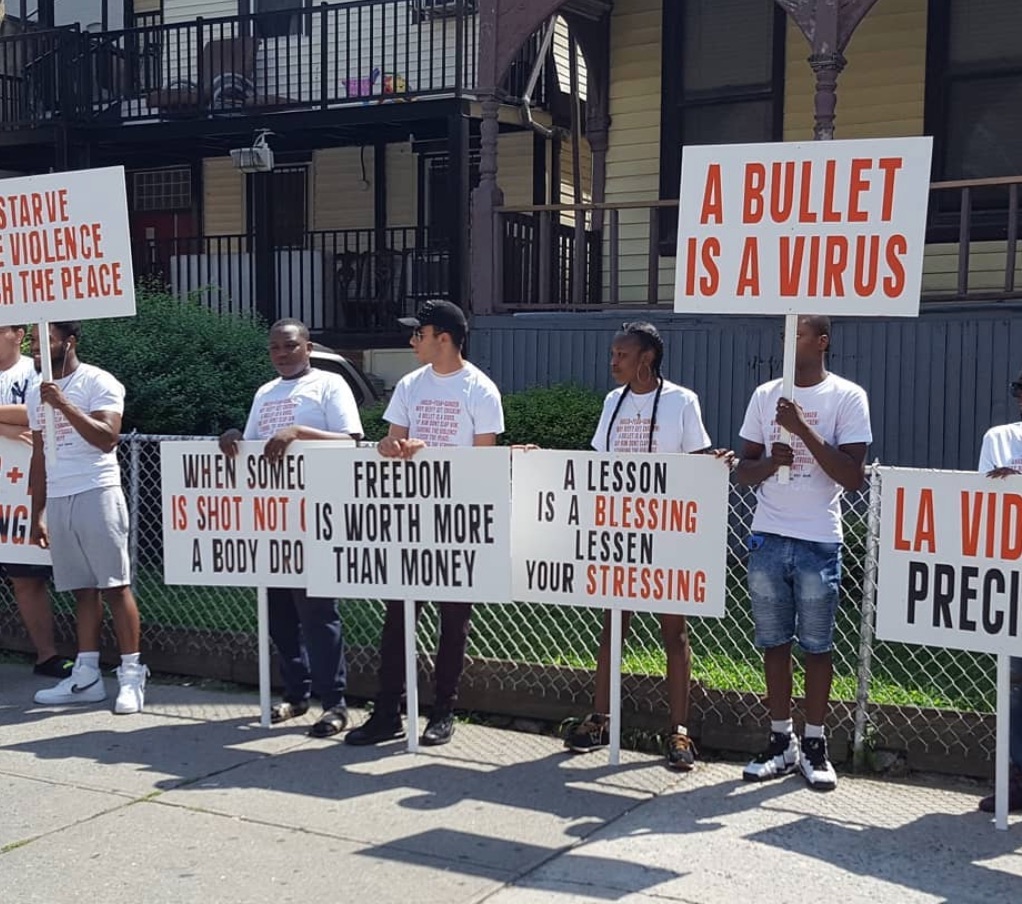An eight-year-old shot in her mother’s NYCHA Patterson Housing apartment in Mott Haven. A man shot dead days after being released from prison in Hunts Point. Two women hit by stray bullets outside Mill Brook Houses in Port Morris.
These incidents are among the 74 shooting victims recorded this year through October 11 by the NYPD’s 40th and 41st precincts. The number of shootings increased by nearly double compared with the same time period last year, according to NYPD CompStat reports.
“People have nothing to do,” said NYCHA’s Mitchel Houses resident Ramona Ferreyra, who blames the recent uptick of gun violence on the boredom residents are feeling and a lack of resources. “Especially when schools only had remote learning. Young people would end up getting into mischief because they lost that structure that took up most of their time.”
With many families facing financial insecurity and strain amid the pandemic, SaveOurStreets Bronx (S.O.S.Bronx) employee and anti-gun violence activist, Marisol Rivera believes that the uptick of shootings can be attributed to insufficient resources and assistance offered to low-income households in this time of need.
“I’ll be honest with you, people are traumatized, a lot of people lost loved ones to the pandemic. A lot of people don’t have jobs so they feel helpless. They feel like they don’t have nothing. Nobody’s there to offer them resources,” Rivera said.
To Youth Over Guns co-founder and executive director Luis Hernandez, the coronavirus crisis laid bare a pre-existing issue faced by low-income Black and Brown communities: violence.
“The most prominent reason why we’ve seen an uptick in violence is because violence already existed in our communities,” Hernandez said. “I encourage people to look at this through a holistic approach of understanding that gun violence is the end result of complex issues which include: criminalization, a system of injustices that actively do not serve our community, mass incarceration, poverty, unemployment, and many other issues that our communities are impacted by. In a time where folks have little to no resources and their basic necessities aren’t being met, we could only expect an uptick of violence.”
While the effects of the pandemic continue to put strain on low-income households, non-profit organizations such as SaveOurStreets Bronx and Youth Over Guns provide employment opportunities and mentorships specifically designed to get youths off the streets.
“We have a 12-week-long paid fellowship program called Anger To Advocacy Incubator for 20 young leaders nationally,” Hernandez said. The fellowship program aims to equip 20 leaders between the ages of 15-25 with advocacy and organizational skills needed to succeed in anti-gun violence activism.
“And it’s going to be a paid opportunity for young people because we also understand that there’s a need for resources and oftentimes, young people from our communities and our programs don’t have the opportunity to do this work for free,” he continued.
S.O.S.Bronx also encourages youths to attend its open house to explore entry-level employment opportunities amid the pandemic. “We have resources here. We have an open house right now where we interview people and they could get a job. We interview them on the spot. Everybody gets a chance,” Rivera said. “Put that gun down, come get a job.”

